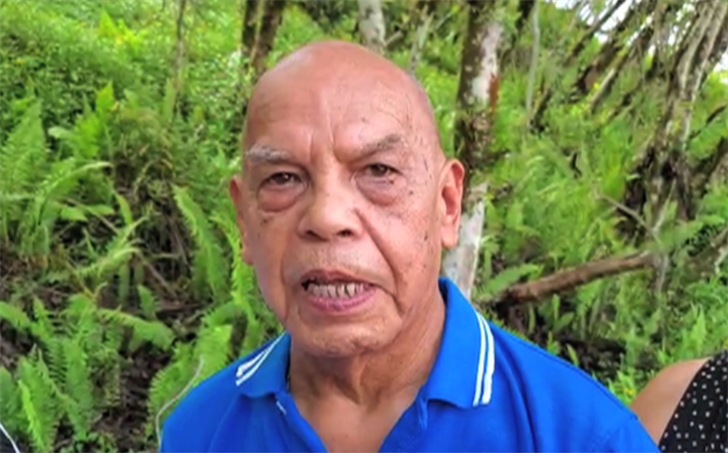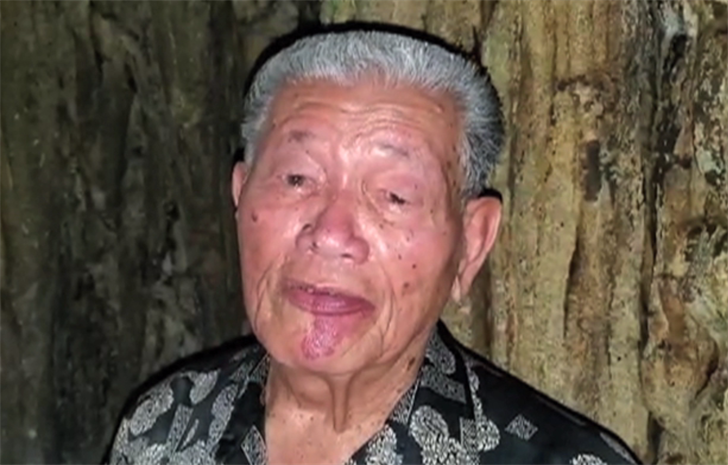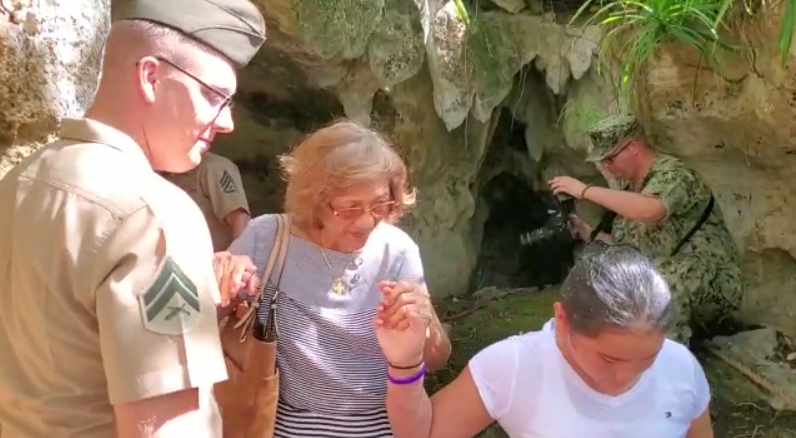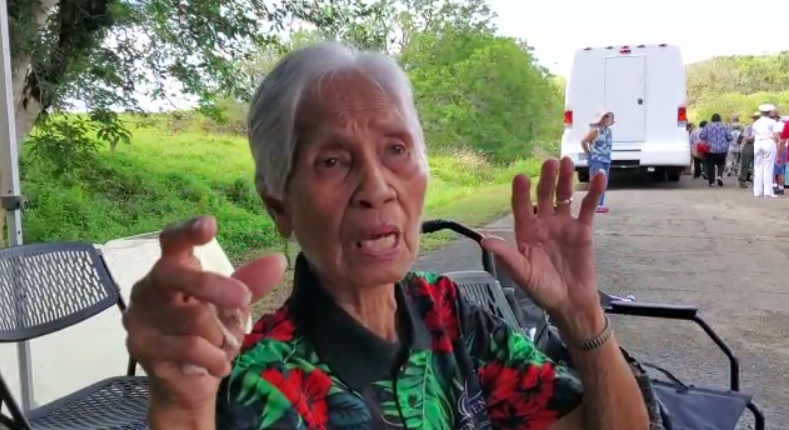Families return to Fena massacre site

It was a somber return to Fena today to honor those lost in the Fena Cave Massacre.
Held every year since 1998, the Fena cave Massacre memorial service honors the unimaginable sacrifices made by CHamorus who were killed and raped at Fena and survivors who lived to tell the tale.
War survivor Kin Babauta - shared the story of his brother in law Vincente "Ben" Borja.

"They give them sake' and all this beer and make them drunk and then the Japanese start throwing grenade in there, so he was wounded and he crawl out of the cave," he said. 'There's a little coconut tree and he stay there and his three friends from Sumay tried to grab him to take him away. He says "no, go because the Japanese are right after you" so he was dead right under the tree.
Thirty CHamorus were killed in the caves, which have since collapsed in some parts. Those who didn't die from Japanese grenades were stabbed by Japanese bayonettes. Survivors of the massacre had to hide under dead bodies. Occupying forces also gathered dozens of women in the caves and repeatedly raped them.

Fena was home to many CHamorus before the war and after the war CHamorus who had lived there were relocated to Agat and Santa Rita as the U.S. military took Fena to build Naval magazine.
Each year, the village mayors work with the military to try and visit the site.

For Vicente Lujan, the journey back to Fena has taken 75 years.
"It's really touchy because the last time i was up here i was only 7 or 8 years old and i like to see the area before i die," he said. "I'm 83-years-old now."
Lujan tells KUAM news he would visit his grandfather's ranch at Fena during the Japanese occupation, bringing corn and food from his family's farm in Barrigada- which was seized by soldiers. He recalls making the 14-hour trek to Fena in a bull cart.
"We're the only family that have carabao and plow in Barrigada," he said. "My father was a prisoner of war - he was in the navy - then they release him in order for him to operate the carabao and plow in Barrigada. So what we did is we keep on planting and we feed the Japanese with that."

Maria Babauta sat with KUAM News and reminisced about living at Fena - she said her family had property there and when Japanese soldiers came to the area, she fled with her relatives.
"I was so glad to come again and look at this place," she said. "I'm 85 now boy, I'm lucky I'm still here to remember my grandfather's property - Fena - i swam that big river!"

